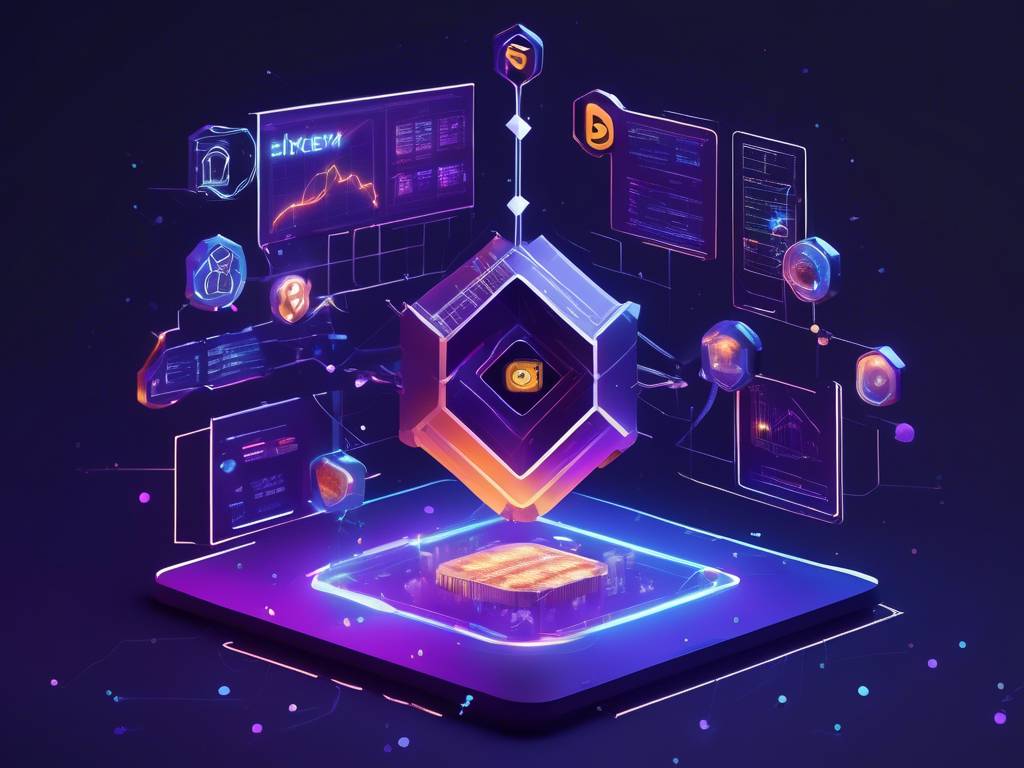Understanding Decentralized Finance in the Crypto World 🌐
Decentralized finance (DeFi) is a revolutionary concept in the cryptocurrency world, where blockchain technologies enable a direct connection between individuals. This means that digital assets can be transferred between parties without the need for intermediaries such as banks or financial institutions. DeFi operates on the principle of trustless transactions, allowing users to interact with each other securely and efficiently. By eliminating third parties from the equation, DeFi offers several advantages that traditional financial systems cannot match.
The Basics of DeFi and How It Works 🤔
DeFi, also known as open finance, is built on the principle of decentralization, which means that no single entity has control over the network. Instead, transactions are executed through smart contracts, self-executing agreements written in code. These contracts automatically enforce the terms of the agreement once certain conditions are met, eliminating the need for intermediaries to oversee the process. DeFi relies on blockchain technology, which ensures transparency, immutability, and security of transactions.
- DeFi creates a direct link between two parties without intermediaries.
- Transactions are executed through smart contracts, eliminating the need for third parties.
- Blockchain technology ensures transparency and security of transactions.
Benefits of DeFi in the Crypto Space 💸
Embracing DeFi in the crypto space offers a wide range of benefits for users, including:
- Financial Inclusion: DeFi provides access to financial services for individuals who are excluded from traditional banking systems.
- Lower Costs: By cutting out intermediaries, DeFi transactions are more cost-effective than traditional financial services.
- Global Accessibility: DeFi platforms operate worldwide, enabling users to access financial services regardless of their location.
Risks and Challenges of DeFi in Cryptocurrency 🛡️
While DeFi offers numerous advantages, there are also risks and challenges associated with this innovative technology:
- Security Vulnerabilities: Smart contracts are susceptible to bugs and security breaches, leading to potential loss of funds.
- Regulatory Uncertainty: DeFi is a relatively new concept, and regulatory frameworks are still evolving, creating uncertainty for users and developers.
- Market Volatility: The cryptocurrency market is highly volatile, leading to risks for DeFi users who may experience sudden price fluctuations.
The Future of DeFi and Its Impact on the Crypto Market 🚀
Despite the challenges, DeFi is poised to transform the financial landscape and revolutionize how individuals access and interact with financial services. As DeFi platforms continue to innovate and expand, they are likely to gain widespread adoption, reshaping the traditional financial system. By harnessing the power of blockchain technology and decentralization, DeFi has the potential to usher in a new era of financial inclusivity and accessibility for users worldwide.
Hot Take: Embracing DeFi for a Decentralized Financial Future 🔥
As a crypto enthusiast, exploring the world of DeFi offers a unique opportunity to participate in a revolutionary financial ecosystem. By understanding and leveraging the principles of decentralization, transparency, and security that DeFi offers, you can take control of your financial assets and access a range of innovative financial services without relying on traditional intermediaries. Embrace the future of finance with DeFi and discover the limitless possibilities it holds for the crypto world!





 By
By


 By
By
 By
By
 By
By